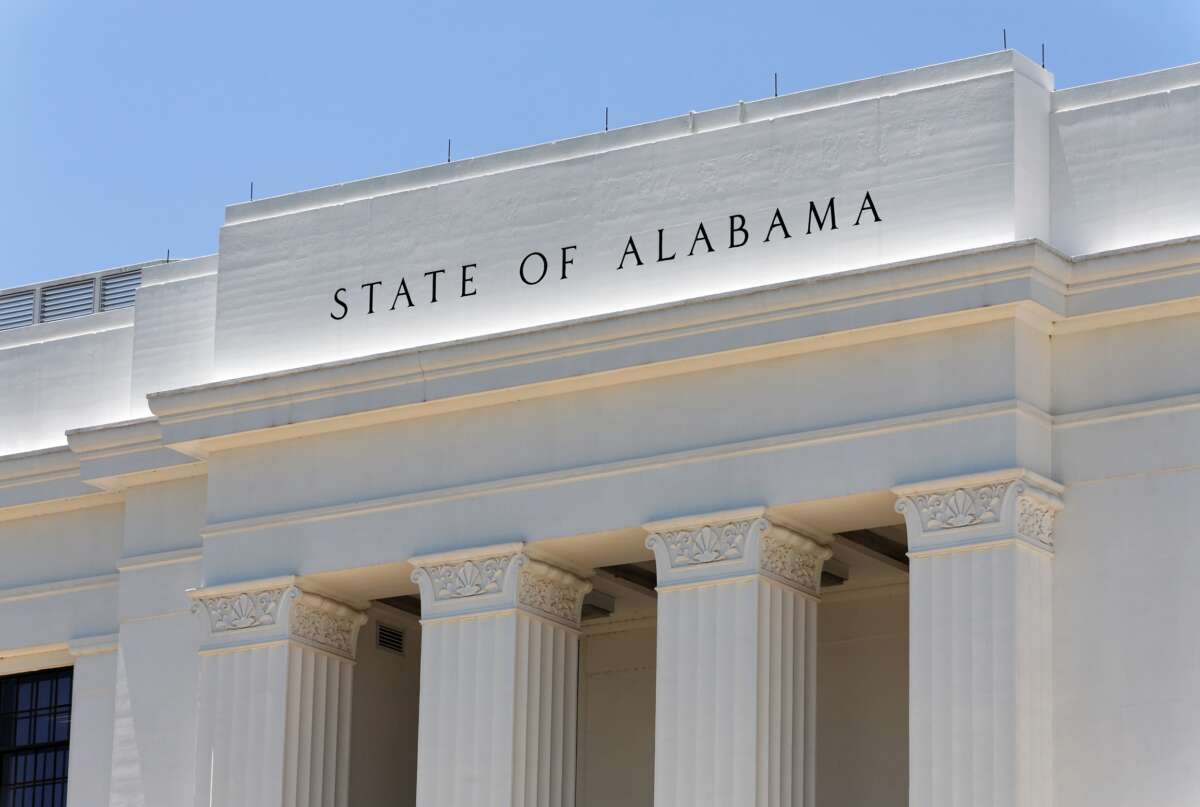Honest, paywall-free news is rare. Please support our boldly independent journalism with a donation of any size.
A Republican lawmaker in the Alabama House of Representatives has submitted a bill that would allow state prosecutors to charge people with homicide or assault for getting an abortion.
House Bill 454, which was submitted by state Rep. Ernie Yarbrough (R) on Tuesday, would erroneously categorize embryos and fetuses as people under the law, granting the state the ability to arrest and charge individuals with murder if they willingly terminate their pregnancies. It would also hold people who have miscarriages criminally liable for the premature but accidental termination of a pregnancy.
The bill uses Christo-centric language to justify classifying abortion as a capital offense, claiming that all human life is “created in the image of God” — despite the fact that abortion is never once mentioned in the Bible. Notably, such language is a blatant violation of national standards on separation between church and state.
Currently, Alabama bans abortion at all stages of pregnancy. The state doesn’t allow for people who obtain an abortion to be charged with a crime, but instead enables prosecutors to charge abortion providers, limiting access to the procedure in the state. While health care providers can face severe punishments for performing abortions, state law does not currently allow them to be charged with murder.
Under the provisions of Yarbrough’s proposal, however, people could be charged with murder for getting an abortion, and face the legal consequences of that charge if they’re found guilty in a court of law. Potentially, their sentence could include the death penalty, which is still legal in Alabama, although Yarbrough’s bill doesn’t mention that as a possible outcome.
Under the bill, a pregnant person could only get an abortion if their life depended on it, and only after a provider sought out “all reasonable alternatives” — a stipulation that could harm a pregnant person if time is of the essence. A person could avoid a murder charge if they demonstrate that they were coerced or forced into having an abortion by someone else — but they are prohibited from using that defense if they “recklessly placed [themselves] in a situation in which it was probable that [they] would be subjected to duress,” the bill stipulates.
Abortion rights journalist Jessica Valenti noted in a recent Substack post that the legislation also allows state prosecutors to charge a person who has had a miscarriage with murder if it’s determined — whether accurately or not — that the miscarriage was the result of the individual’s negligence.
The bill mandates that “homicide prosecutions treat an ‘unborn child’ as any other homicide victim, and that women be charged if their pregnancy ends as a result of recklessness or negligence,” Valenti wrote. “That could mean literally anything that a zealous prosecutor decides makes you responsible: Lifted something heavy? Reckless. Didn’t take pre-natal vitamins? Negligence.”
The bill, if it becomes law, would have a devastating impact on pregnant people in the state. Around one in eight individuals who know they are pregnant will have a miscarriage, statistics show, while some estimates say that more than a quarter of all pregnancies (including those that people are unaware of) end in miscarriage.
Speaking to Valenti about the bill, Robin Marty, Director of Operations for the West Alabama Women’s Center, decried the proposal as reckless and troubling.
“From the moment a person is pregnant — whether they are aware or not — that person will now be in immediate danger of being accused of a murder,” Marty said. “For a state with no sex ed, no birth control, no insurance and no hospitals to now order them to give birth to a healthy baby or go to jail is unconscionable.”
Media that fights fascism
Truthout is funded almost entirely by readers — that’s why we can speak truth to power and cut against the mainstream narrative. But independent journalists at Truthout face mounting political repression under Trump.
We rely on your support to survive McCarthyist censorship. Please make a tax-deductible one-time or monthly donation.
